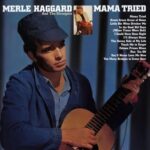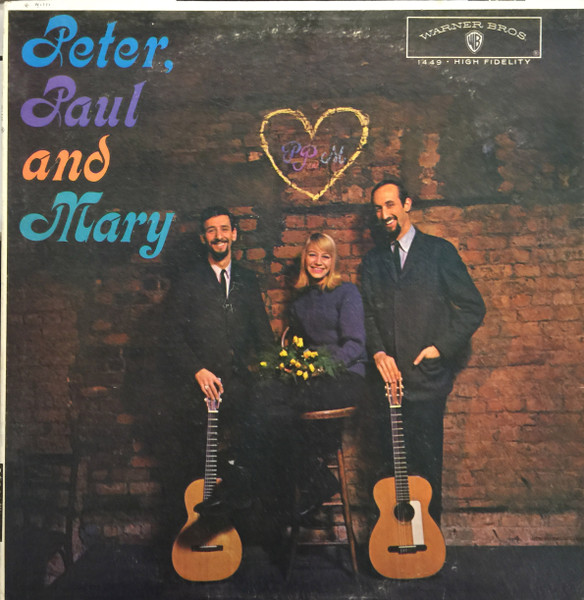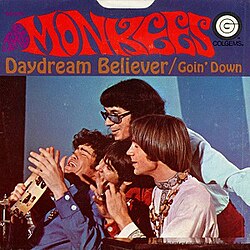 Merle Haggard’s “Mama Tried” isn’t just another country song—it’s a confession, an autobiography wrapped in twang and truth, and one of the most enduring outlaw anthems ever written. Released in 1968, at the height of a turbulent decade that tested American ideals, the song offered a personal look into the soul of a man who had truly lived his lyrics. Long before “outlaw country” became a marketable genre, Haggard was the outlaw—the ex-con who turned his prison time into poetry. “Mama Tried” distilled his story into two minutes and twelve seconds of aching regret, humble honesty, and dusty steel guitar. It remains, more than half a century later, one of country music’s purest reflections on personal failure and the unbreakable bond between sinner and saint—between a wayward son and the mother who never gave up on him.
Merle Haggard’s “Mama Tried” isn’t just another country song—it’s a confession, an autobiography wrapped in twang and truth, and one of the most enduring outlaw anthems ever written. Released in 1968, at the height of a turbulent decade that tested American ideals, the song offered a personal look into the soul of a man who had truly lived his lyrics. Long before “outlaw country” became a marketable genre, Haggard was the outlaw—the ex-con who turned his prison time into poetry. “Mama Tried” distilled his story into two minutes and twelve seconds of aching regret, humble honesty, and dusty steel guitar. It remains, more than half a century later, one of country music’s purest reflections on personal failure and the unbreakable bond between sinner and saint—between a wayward son and the mother who never gave up on him.
A Song Born from the Shadows of San Quentin
By the time Merle Haggard wrote “Mama Tried,” he had already lived enough for three lifetimes. Born in Oildale, California in 1937, Haggard was raised in a converted boxcar by a devout mother and a father who died when Merle was just nine. The loss shattered his sense of security and sent him spiraling into rebellion. Petty crime, truancy, and car theft landed him in reform school before his 20th birthday—and later, in San Quentin State Prison for attempted robbery.
It was inside those concrete walls that Haggard hit rock bottom and started to rebuild. He famously attended a performance by Johnny Cash at the prison—a show that inspired him to clean up and chase music full time. “Mama Tried,” written a few years later, was both confession and catharsis. It’s his apology to his mother, Flossie Mae, for the pain he caused her during those dark years. While other songwriters might have romanticized the outlaw life, Haggard approached it with brutal honesty: the song wasn’t a celebration of rebellion, but an acknowledgment of regret.
Lyrics That Hurt Because They’re True
The opening line sets the tone:
“The first thing I remember knowing was a lonesome whistle blowing, and a young’un’s dream of growing up to ride.”
In just one line, Haggard paints a cinematic picture—the child longing for freedom, listening to the train’s call, yearning for a life bigger than what he sees. It’s the same restless spirit that defines countless country protagonists—from Hank Williams’ ramblers to Johnny Cash’s fugitives—but here, Haggard grounds it in autobiography.
As the song unfolds, we hear the entire arc of a broken life in miniature: a good mother who “tried to raise [him] right,” a son who “refused to do the things she said,” and the final acknowledgment that “no one could steer [him] right but Mama tried.” The chorus, delivered with a quivering mix of pride and pain, lands like a confession to both God and the audience.
Unlike many country songs of its era, “Mama Tried” doesn’t rely on metaphor. It’s literal, stripped down, and emotionally exposed. Haggard doesn’t disguise his guilt or try to justify his choices. That vulnerability is what gives the song its timeless power—it’s a man facing his mistakes and recognizing the human cost of freedom.
The Sound of Bakersfield Honesty
Musically, “Mama Tried” is a quintessential example of the Bakersfield Sound—a raw, electric alternative to the polished Nashville productions of the 1960s. Built around twanging Telecaster guitars, pedal steel, and a driving backbeat, it embodied the working-class toughness of California’s country scene.
Haggard’s band, The Strangers, provided a perfect sonic foundation. Roy Nichols’ lead guitar lines slither like desert heat, while Norman Hamlet’s pedal steel floats above with mournful grace. The rhythm section keeps it steady but not stiff—this is country with grit under its fingernails, a sound that feels more like a roadhouse confession than a studio recording.
The production, handled by Ken Nelson, strikes a delicate balance: clean enough for radio, but unvarnished enough to preserve Haggard’s edge. There’s no orchestration or pop gloss—just a man, his story, and a band that sounds like it’s playing from the heart, not a chart.
The Voice That Defined Working-Class Country
Merle Haggard’s voice carries the weight of the American working man—rugged but tender, rough but real. His delivery on “Mama Tried” is not theatrical; it’s conversational, as if he’s telling you his story across a barstool. You can hear the tension between pride and shame in every note, especially in the way his voice dips when he sings “That leaves only me to blame, ‘cause Mama tried.”
There’s no over-singing, no grandstanding—just plainspoken emotion. That restraint is what makes it hurt so much more. He’s not performing for sympathy; he’s confessing a truth that can’t be undone.
Haggard’s phrasing—punctuated by those signature pauses—lets the words breathe. You feel every regret in the space between syllables. It’s country storytelling at its finest: sparse, direct, and utterly human.
A Bridge Between Outlaw and Tradition
“Mama Tried” occupies a fascinating space in country music’s evolution. Released in the late 1960s, it arrived during a time when Nashville’s establishment favored lush orchestration and moral simplicity. But Haggard’s music—rooted in blue-collar realism—spoke to a different audience.
Unlike the romanticized rebels of later outlaw country (Willie Nelson, Waylon Jennings, Kris Kristofferson), Haggard’s rebellion came from experience, not aesthetics. He wasn’t playing the part of an outlaw; he was one. Yet, paradoxically, he also respected the traditions of country music and the moral lessons it carried. “Mama Tried” reconciles those opposites—it’s a song about sin, but also about conscience; about failure, but also redemption.
This tension would become central to Haggard’s artistry. Songs like “Okie from Muskogee” and “The Fightin’ Side of Me” revealed a man who wrestled publicly with the shifting values of America. “Mama Tried” is where that internal conflict feels most personal. It’s not political; it’s spiritual.
Chart Success and Lasting Impact
Upon its release, “Mama Tried” became one of Haggard’s biggest hits. It topped the Billboard Hot Country Singles chart in 1968 and earned him a Grammy nomination. More importantly, it solidified his reputation as the poet of the penitentiary—a man whose songs spoke for the forgotten and the flawed.
The song quickly transcended its genre. It’s been covered by artists as diverse as The Grateful Dead, Joan Baez, Everlast, and The Supersuckers. Each version brings something new, but none can match the weary authenticity of Haggard’s original. The Dead’s rendition, often stretched into live jams, introduced it to rock audiences and solidified its place in the American musical canon.
Over the decades, “Mama Tried” has become shorthand for a certain kind of country song—one that blends autobiography, morality, and melody into something universal. You don’t have to have done time to understand it; you just have to know what it feels like to disappoint someone who believed in you.
Why “Mama Tried” Still Resonates
At its core, “Mama Tried” is about responsibility—the moment when a man stops blaming the world for his failures and starts looking inward. It’s not just about prison bars; it’s about emotional imprisonment, the kind that lingers long after the gates swing open.
Haggard’s genius lies in how he universalized that struggle. The song speaks to anyone who has ever fallen short of expectations, especially those set by family. The line “No one could steer me right but Mama tried” feels like a eulogy for lost innocence. It’s the sound of a man realizing too late that love and discipline were never his enemies—they were his salvation.
Even now, decades later, the song cuts through generational divides. It’s not nostalgia that keeps it alive—it’s truth. Every mother who’s ever worried about her child, every son who’s ever felt he let someone down—they all live inside “Mama Tried.”
Cultural Legacy and Influence
Beyond its chart performance, “Mama Tried” helped redefine the image of the country singer. Before Haggard, most mainstream country stars projected clean-cut personas. After him, audiences began to accept that country music could come from men who had scars, both literal and emotional.
Haggard’s authenticity paved the way for future rebels—Waylon, Willie, Johnny Paycheck, and later, Steve Earle and Chris Stapleton. Even outside country, artists like Bruce Springsteen and Bob Dylan admired his lyrical craftsmanship and storytelling precision. Dylan once said that Haggard “was like the country version of James Dean,” embodying both defiance and vulnerability.
In 1999, the Library of Congress added “Mama Tried” to the National Recording Registry, cementing its place in American history. It’s been featured in countless films, documentaries, and television series—whenever filmmakers want to evoke the sound of heartbreak, redemption, or the American West.
The Duality of the Outlaw
What makes “Mama Tried” so enduring is its emotional complexity. It’s not a simple tale of right and wrong; it’s about how both can coexist inside the same person. Haggard doesn’t ask for forgiveness, but he acknowledges his guilt. He doesn’t glorify rebellion, but he understands its pull.
That moral ambiguity mirrors Haggard’s own life. Even after achieving fame, he remained a man of contradictions—patriot and rebel, conservative and poet, sinner and sage. “Mama Tried” encapsulates all those tensions in a song barely over two minutes long.
The brilliance of its simplicity can’t be overstated. It’s just three verses and a chorus, yet within that structure lies an entire moral philosophy: that love can’t always save someone, but it can still define them. Mama tried, and that effort—though unsuccessful—remains sacred.
A Timeless American Confession
Listening to “Mama Tried” today, you can still feel the dust of Bakersfield, the clang of prison gates, and the warmth of a mother’s prayer. It’s the kind of song that transcends time and place, because it speaks to the most human of truths: we all disappoint someone, and we all hope for forgiveness.
Merle Haggard’s gift was turning that truth into melody. His music gave voice to a class of Americans often ignored—the working poor, the ex-cons, the dreamers who made more mistakes than plans. But he never asked for pity. He simply told the truth, and that honesty became his redemption.
“Mama Tried” isn’t just his story—it’s America’s. It’s the story of rebellion and remorse, of love that endures failure, and of a son who learned too late that his mother’s wisdom was never meant to chain him, but to save him.
Legacy of the Broken Son
When Merle Haggard passed away in 2016—on his 79th birthday—the tributes poured in from every corner of the music world. Many cited “Mama Tried” as his defining song, the one that encapsulated both his life and his art. It remains a cornerstone of American songwriting, taught in music schools and covered in dive bars with equal reverence.
Its legacy is not just in its melody or lyrics, but in its emotional courage. In a world obsessed with image, Haggard dared to expose his flaws. “Mama Tried” reminds us that art doesn’t have to be perfect—it just has to be honest.
Half a century later, the song still feels alive—etched into jukeboxes, open-road playlists, and family memories. It’s a hymn for the imperfect, a lullaby for those who lost their way, and a tribute to every mother who kept praying anyway.
Final Thoughts
Merle Haggard’s “Mama Tried” stands as one of the most powerful statements in country music history—not because of grand instrumentation or flashy storytelling, but because it’s the sound of truth sung by a man who lived it. It’s an unflinching confession set to a steel guitar, a testament to both human failure and enduring love.
If the American songbook has its saints and sinners, Merle Haggard is both. And “Mama Tried” is his gospel—honest, weary, and everlasting.


